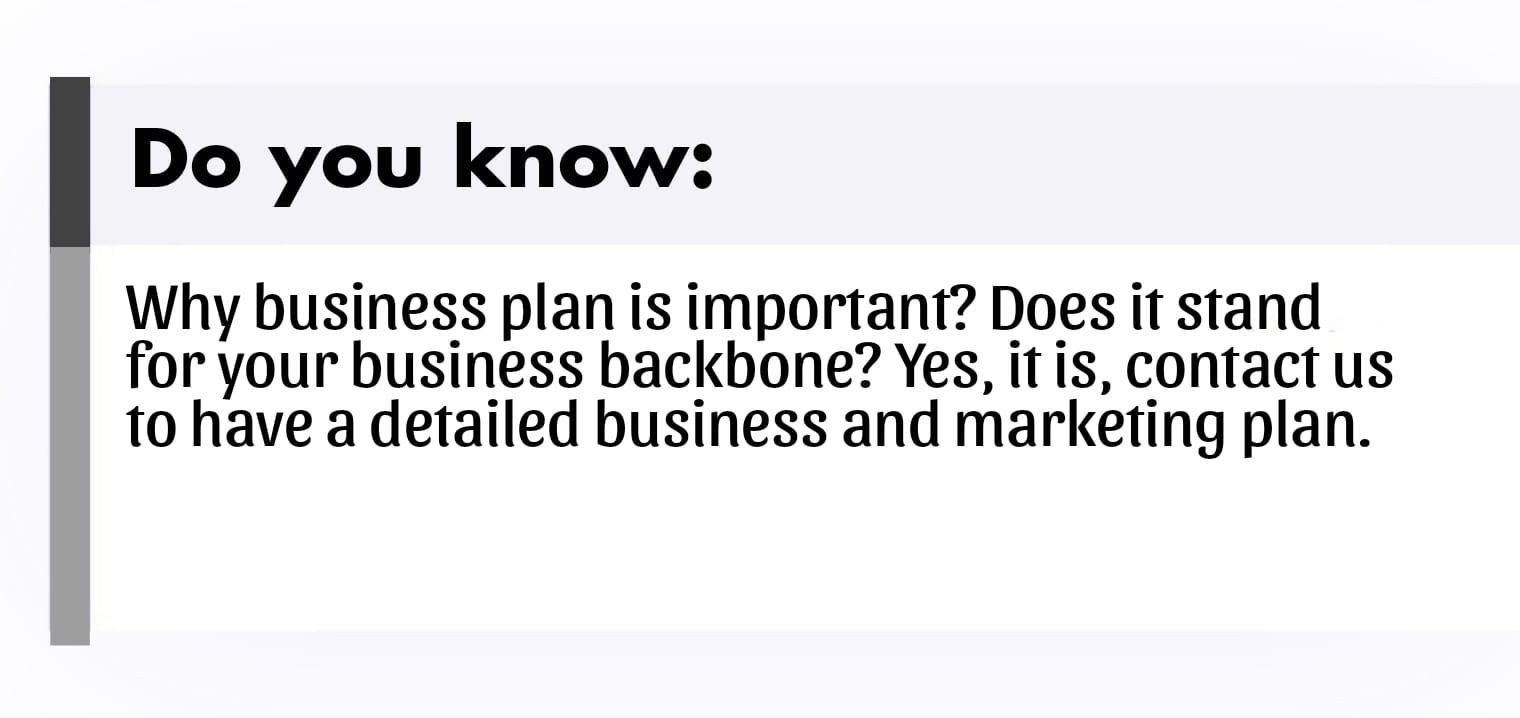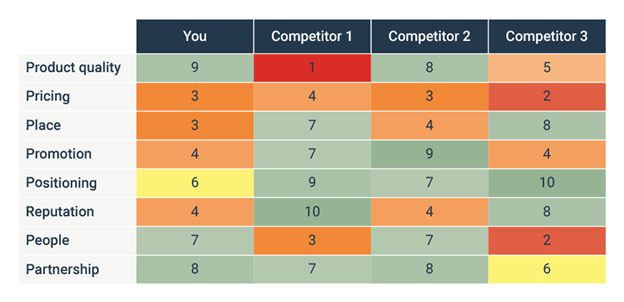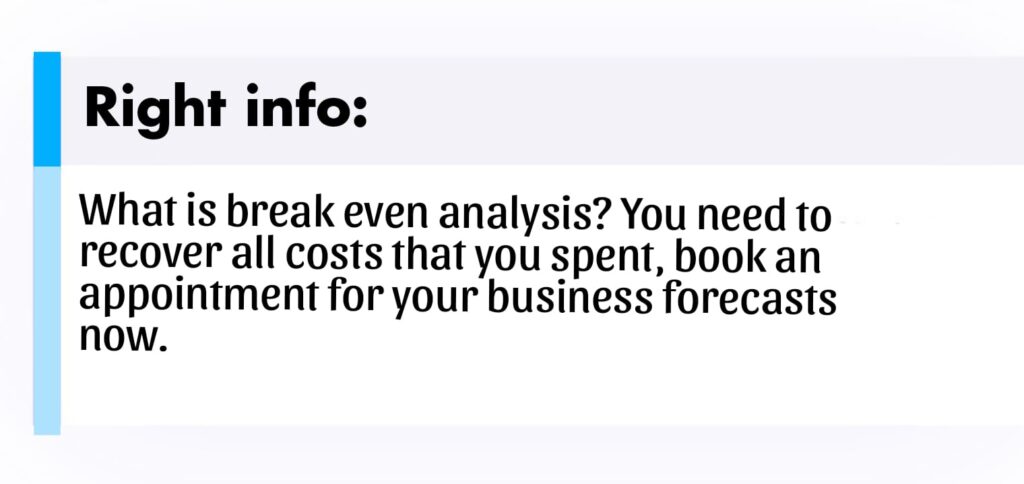Thinking about how to start a new business can be hard work, but if you break down the process into a few simple steps, it will be easier. Rather than spinning your wheels and guessing where to start, you can follow the tried and true methods of entrepreneurs who’ve done it successfully. However, if you want to learn how to create your own business, follow this 16-step checklist to launch your business from a light bulb above your head into an actual entity.
What is business?
Everyone does not know that a business is an economic activity that produces revenue in the economy or society. Besides that, people only think of creating a business as a source of income for their expenses and lifestyle. No matter how significant or daring your ideas are to expand your business ideas, operational excellence, customer relations/communications, and financial management are the critical components to building or starting a new business, even if you have no money.
How to Start a New Business
In this article, you will find helpful information about starting a new small business setup or if you want to start an online business. Here is a list of 16 steps for your data before starting a new business:
1. Be clear with your mind.
If you want to begin a business, you might be confused about where and what to start. Do not worry; you must only wake up and decide about brilliant ideas. You already know what you want to sell online or at least what market you want to get into. It’s straightforward that you can do it online by having these points in mind:
- Do a quick look for companies that are already in the industry in which you want to work in
- Find out what the top brands are doing and how to do it smarter.
- If you think your business can offer something other companies don’t (or the same thing faster and cheaper), list it down.
- Finally, you have a good idea and are ready to make a business plan.

2. Brainstorm your idea.
It is observed that entrepreneurs often rush into starting a company without first considering who they would serve and why those clients will want to do business with them. During the brainstorming process, the most essential particulars should be worked out. It may be time to think about alternatives if you’re not invested in the concept or can’t find a buyer for your product.
When starting a new business, the first step is to define your business idea. This is the foundation on which your entire business will be built, so it’s crucial to take the time to get it right. But what if you have no ideas? Don’t worry. You are in the right place. Many aspiring entrepreneurs struggle with creating a unique and viable business idea. The key is identifying a problem or need in the market and finding a creative solution. Besides that, you might be considering taking a business loan. Then wait; we can guide you if you need it or not.
Another option is to consider a “business for home” model. This involves providing products or services directly to customers in their own homes. This could include offering personal training and development strategies to promote your business.
3. Outline a business strategy.
Once you’ve settled on a concept, you should ask yourself the following crucial questions: Why did you start this company? To whom are you trying to sell? What do you hope to get? How will you get the loan or money to get started? A progressive strategy should address these concerns.
New company entrepreneurs often blunder because they don’t consider these issues before jumping in. You must identify your ideal clientele. Who do you expect to purchase your wares? If there is no demand for your product, then there is no use in pursuing it.
4. Explore the market.
An essential aspect of developing a business strategy is doing in-depth market research about your chosen industry and the demographics of your target customers. This requires searching SEO and public data, conducting surveys, and arranging focus groups.
- Market research is essential for gaining insight into your industry and rivals and your target customer’s requirements, interests, and behaviour.
- Many experts in small company administration stress the need to research your market’s demographics and do a competitive study.
- Remember that doing market research will help you start a new online business or a small company.
- The most successful micro-businesses provide something unique to the market. Because of this, you can stand out from the competition and communicate your value to prospective consumers compellingly. You should know the best ways to start a low or no-income business.
5. Must Use an Exit Policy
An exit policy is a strategy that startup owners must know about and how to use. It is a method that tells us about a plan for how to leave your small business, which is an integral part of your total business plan. When the time comes, it clarifies who you want to take over or sell your business to. It also spells out the business and financial goals you want to have reached by the time you leave.
Thinking about how you’ll leave the company as you create your plan is essential. Creating a plan for leaving the company requires you to think forward. According to Josh Tolley, CEO of both Shyft Capital and Kavana, there are many times when new entrepreneurs are so excited about their business and so sure everyone everywhere will be a customer that they give very little time to show the plan on leaving the business. (source: https://wbis.biz/blog/).
What is the first item passengers are shown when they board a plane? How to discontinue use of it. Kindergarteners learn evacuation procedures and practice fire drills during the first week of school. Far too often, I see company heads who don’t have at least three or four distinct exit strategies in place. As a result, the company’s value has dropped, and family ties have been severed. Speadinfo will assist you with a complete business solution for starting your business.
What is the next step? Make a business plan.
A business plan can help you map out your company’s future, identify and address any obstacles, and determine the resources required to stay balanced. Use a free sample when you’re ready to put pen to paper.
6. Prepare your business plan
Making a plan is another critical thing to do before starting a business. A business plan is documentation showing how to set up, run, and oversee your new business.
- It helps you get investors, earn the trust of banks, and figure out how much it will cost to start your business, among other things.
- A business plan form can help you write down your ideas.
- No matter how you start, the following should be in your business plan
Before you do anything else, you need to ask yourself a few critical things: What do you want your business to do? Who do you want to sell to? What do you want to achieve? How are you going to pay for the start-up costs? A well-written business plan can provide you with answers to these questions.

7. Apply a Comparative Analysis
If you do a comparative analysis and apply it to your starting business strategy, it will benefit you a lot. You may learn more about your rivals’ goods, services, and sales strategies through a competitive analysis. A thorough competition analysis should be performed yearly as a matter of good business practice.
To remain competitive, “you always want to stay on top of what your competitors are doing and where you stand,” adds Kazim. In addition, “It’s something to make part of your organizational discipline, like keeping good books.
Here is an example of a competitive analysis table; you can grade yourself by using this table.

8. Market Research
In-depth market research on your industry and the demographics of your target customers is a crucial aspect of developing a business strategy. This requires searching for SEO and public data, studying, and conducting polls and focus groups. Conducting market research enables you to learn more about your ideal consumer, their wants, and how they act in the market. Several small company specialists advise obtaining demographic information and conducting a competition study to better identify potential and constraints within your market. Studies have shown that companies focusing on customers make 60% more money. Putting the needs and wants of the customer first is an excellent way to succeed. Read more
Tip:
Remember that micro-businesses that do well offer something that no one else does. This changes the rules and gives you a new way to show potential clients how valuable your business is.
9. Check out Your Savings.
Are you ready to decide to start a new business? Then you should be ready to spend a little on it. It takes money to start a business, so you need to figure out how you will pay for it. Can you pay for your new business, or will you have to borrow money? Do you have enough saved to support yourself until you make a profit if you decide to quit your job to focus on your business? Get an idea of how much it will cost to start your business.
10. Perform a break-even analysis.
A break-even analysis is a helpful tool for estimating the amount of capital required. When a firm, product, or service starts making money, it is one of the most important financial planning questions owners may ask.
This tool is helpful for every company owner since it reveals the bare minimum of success necessary to prevent financial ruin. In addition, knowing your income source allows you to tailor your production strategies to maximize revenue.
Why business owners need BEP (break-even point) Analysis
Here are the three most well-known reasons to perform a break-even analysis:
- Determine profitability: This is usually every business owner’s biggest goal.
Ask yourself: How much income do I need to create to meet all my expenses? Which goods or services turn a profit, and which ones are sold at a loss?
- Price a good or service. When most people think about price, they consider how much their product costs to make and how rivals are selling their goods.
Ask yourself: What are the set rates, what are the changeable costs, and what is the total cost? What is the cost of any authentic goods? What is the cost of labour? Analyze the facts. Consider the amount of things or services you would have to sell.

11. Identify the Legal Structure for the Business
You need to know what kind of business you have before registering it. How you set up your business legally affects everything, from how you file your taxes to how much you are responsible for if something goes wrong.
A sole proprietorship is a type of business you can set up if you plan to be the only one responsible for all its bills and responsibilities. You should know that this path can directly affect your credit score.
Partnership: On the other hand, a business partnership means that two or more people are personally responsible for running the business, as the name suggests. Do not go it alone if you can find a business partner whose skills differ from yours. A lot of the time, adding someone to your work family is a good idea.
The Corporation: Consider corporations’ pros and cons (like an S corporation or C corporation) if you want to split your responsibility from that of your business. There are different rules for each type of company, but in general, this formal structure sets a business apart from its owners. Because of this, companies can own property, be responsible, pay taxes, sign contracts, sue, and be sued, just like any other person. Before starting a C Corporation, you should ask an attorney for formal help.
Company with limited liability: The limited liability company (LLC) is a type of business organization used by many small businesses. This hybrid structure provides the formal protections of a company. At the same time, the tax benefits of a partnership are also available.
Tip:
To open an LLC, you should know about an organisation’s articles first. An article of organization is a must-have document in the formation of a limited liability company.
12. Get a License for Your Company
Without articles of incorporation or an operating agreement, you must register your business name. This can be your given name, a trade name you’ve created if you’re a lone owner, or a name chosen randomly. You should also consider trademarking your company name for further security.
Doing business as (DBA)
A DBA holds a business entity license in most states of different countries, particularly in the USA. A DBA certificate may be required if you are doing business as a general partnership or a single proprietorship using a name other than your legal name. For information on what is needed and how much it will cost, contact or stop by your county clerk’s office. There is typically a cost associated with signing up.
13. Must Have an Online presence
An online presence can be defined by how easy it is to find your business when searching for relevant keywords online or how many virtual or online ‘touch-points’ a customer can interact with when wanting to find out more about your brand, products and services. You can use social media platforms like Facebook, Instagram, and YouTube to build your online presence. You can make your business website to introduce your brand or your services to people.
Here are some benefits of this:
- Increase customer interest
- Win buyers trust
- Build your authenticity
- Enhance brand awareness
14. Set Your Payment Modes
It is observed not every company requires the same suppliers; the majority of companies require some standard of goods and services. Think about the following actions that are important for any company.
- Making it possible for buyers to pay in various ways increases the possibility that a transaction will be made in a way that is most convenient for that buyer.
- To discover your company’s most affordable credit card processing service, it is essential to shop around.
- Accepting different payment modes from customers.
15. Prove Your Self Right
This is the most important step to stimulate your business journey. You might have heard that famous American motivational speaker and author Jim Rohn said, “If you go to work on your goals, your goals will go to work on you. If you go to work on your plan, your plan will go to work on you. Whatever good things we build end up building us.”
Here is a brief story of Howard Schultz, the CEO of Starbucks. He believes you should not focus on why you can’t follow through with something, which is the vast majority’s speciality. You ought to focus on why maybe you can and be one of the particular cases. Many of life’s disappointments are individuals who didn’t understand that they were such near progress when they surrendered. According to his story, I accept life is a progression of close misses. Much of what we credit to karma isn’t karma by any means; it’s living every moment to the fullest and tolerating obligations regarding your future.
It’s seeing what others don’t have any idea; what’s more, chasing after that vision, I feel so absolutely that the explanation I’m here is I thought ambitiously I envisioned the sort of dreams that others said wouldn’t be imaginable. I can’t offer you a particular mystery recipe for victory, the ideal arrangement for how to come to the zenith of progress in the business, yet that’s what my own experience recommends: beginning without any preparation, accomplishing considerably more than whatever I dream about is very conceivable yet, if you hang tight for the ideal conditions you won’t ever finish everything except the beneficial thing is you can pursue a choice and assume command presently recall something in 12 months you might wish you had begun today.
Now, first of all, you have to work hard to make your dreams successful and prove yourself to you. Secondly, after developing a roadmap for your new startup idea, you can prove yourself to others by acting on your strategy.
16. Apply for a business credit card
A business credit card can help you keep your business and personal money separate, and it can help acquire supplies and pay payments while your cash flow is still erratic.
Bottom Line
Starting a new business can be a challenging yet rewarding journey. By following the steps outlined in this guide, you can lay a strong foundation for your business, ensure its long-term success, and leave a lasting impact on your industry.
Emphasizing the importance of dedication and perseverance, remember that starting a business with a bang requires continuous effort, resilience, and a passion for growth.
FAQ’s
Can I start a business if I have no money?
Yes, there are many online business options; you can think about that and start at a beginner level.
Should I register my business?
You must register as a business entity to build a semi-medium or large-scale business.
How can I set up a small business?
You can consult a business expert who can guide you from scratch to the endpoint.
What are some standard financing options for startups?
- Loans from financial institutions
- Venture capital firms
- Government-backed grants or subsidies
How long does it usually take to start a new business?
The timeline for starting a new business can vary depending on various factors, such as the complexity of the business idea, legal requirements, market conditions, and the availability of resources. While some businesses can be launched within a few months, others may require longer planning and preparation, taking anywhere from six months to a year or more.
What are some common pitfalls to avoid when starting a business?
- Insufficient market research or failure to identify a target audience
- Lack of a solid business plan
- Poor financial management or underestimating startup costs
- Neglecting legal and regulatory requirements
- Failing to adapt to changing market conditions
